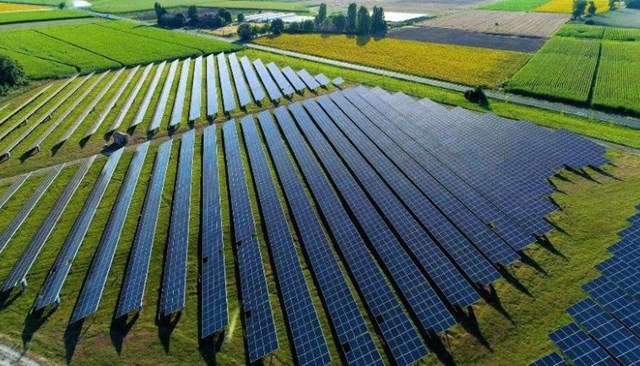EU countries have transposed less than half of the renewable energy permitting reforms required under the bloc’s 2023 Renewable Energy Directive, according to a new report from SolarPower Europe.
The trade group assessed progress in 20 EU Member States, revealing that the average transposition rate for key permitting measures stands at just under 50%.
Italy, Romania and Slovenia lead with 78% transposition, while Latvia ranks lowest at 13%, followed by France, Croatia, the Netherlands and Slovakia at 22%.
SolarPower Europe said that despite incremental progress since 2023, most EU countries are still falling short of enacting reforms to speed up the deployment of clean energy.
The report highlights ongoing barriers including slow permitting timelines, confusion around acceleration areas, failure to simplify solar permitting on artificial surfaces, and poor implementation of the overriding public interest principle for renewables.
Lina Dubina, policy advisor for sustainability at SolarPower Europe, said: “Now is the time to accelerate solar permitting to drive the rollout of renewables, phase out fossil fuels, and strengthen Europe’s energy security and competitiveness.
“We urge the European Commission to work closely with Member States to turn legislative ambition into real on-the-ground progress.”
Dries Acke, deputy CEO of SolarPower Europe, added: “Policymakers expect rapid renewables acceleration to meet the EU’s 2030 target, but permitting remains a major bottleneck.
“This updated report shows that many Member States continue to lag in fully and promptly implementing EU permitting rules under REDIII.
“Even where legal frameworks exist, they often don’t function effectively in practice.”
The EU’s revised Renewable Energy Directive, which entered into force in November 2023, includes a binding target of at least 42.5% renewable energy by 2030.
Member States were required to transpose the permitting provisions of the directive into national law by 30 June 2024.
SolarPower Europe has called on the European Commission to prioritise enforcement of the current rules rather than pursuing deregulation.
The association is urging the EU to direct funding towards training regional and local permitting authorities, promote harmonised rules for innovative solar technologies and hybrid renewables projects, and support better knowledge-sharing across countries.
The group said that streamlining permitting remains essential to delivering Europe’s renewable energy transition at the scale and pace required.

